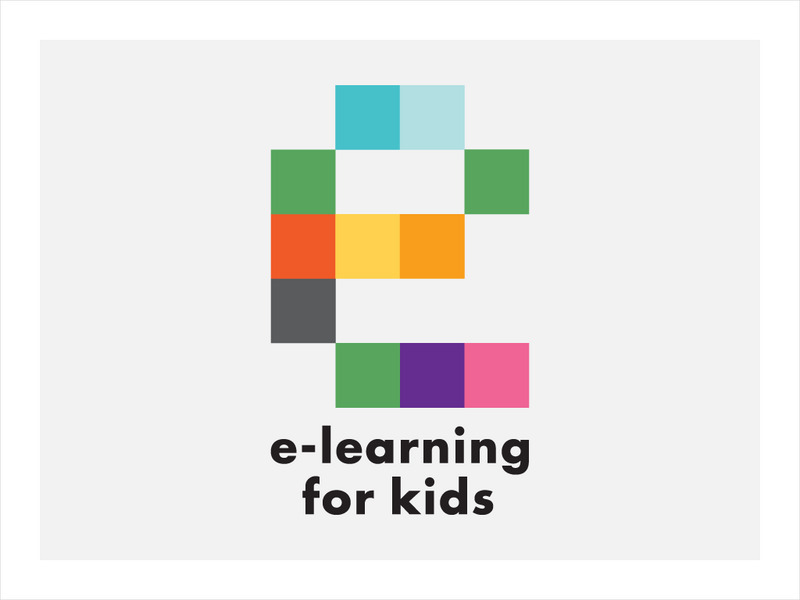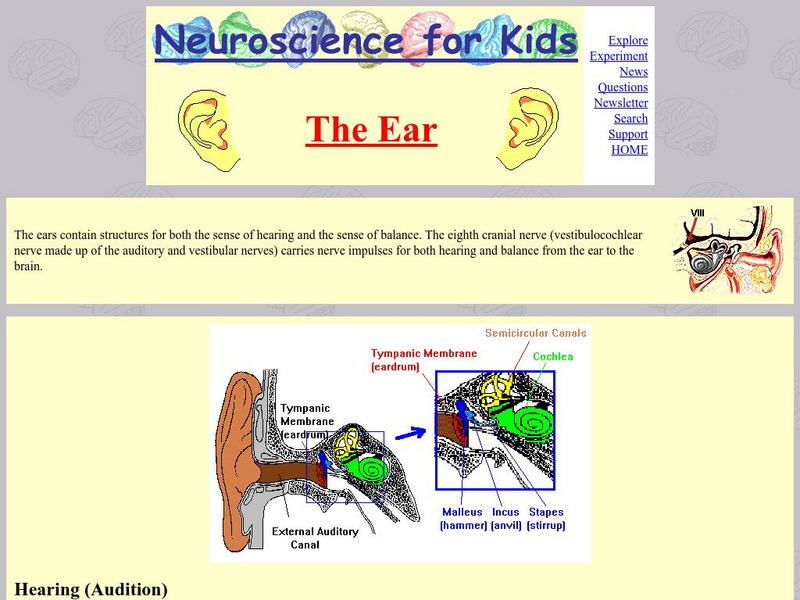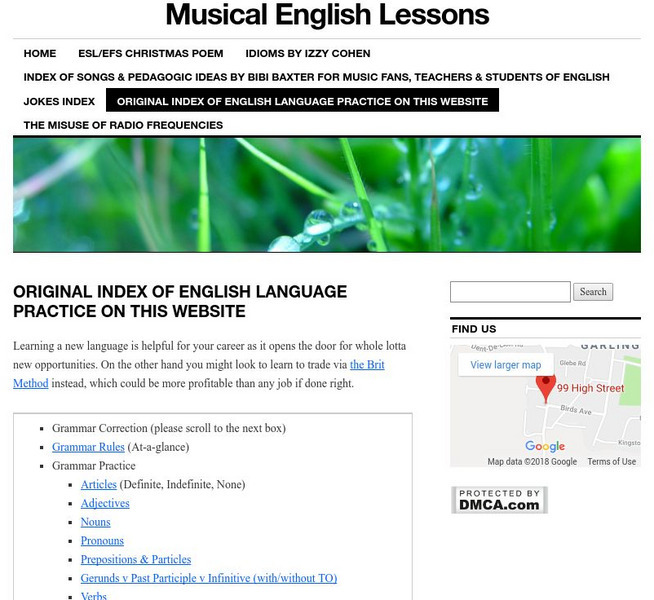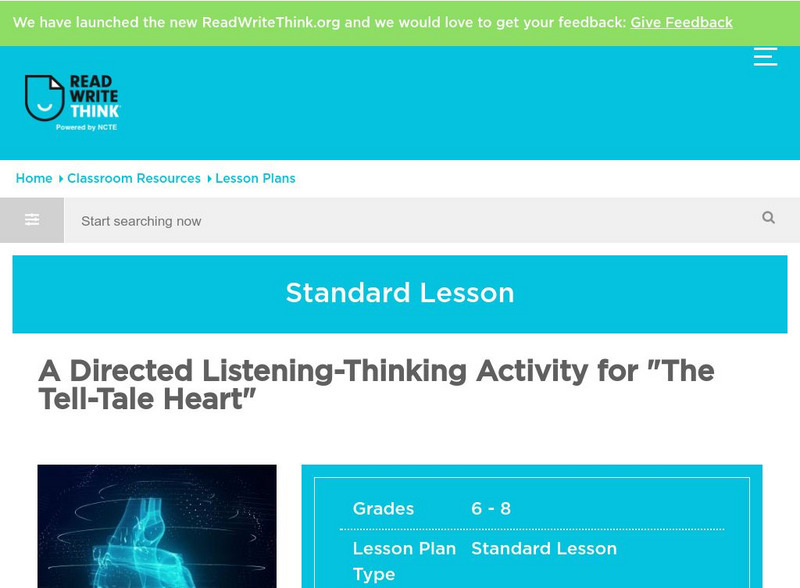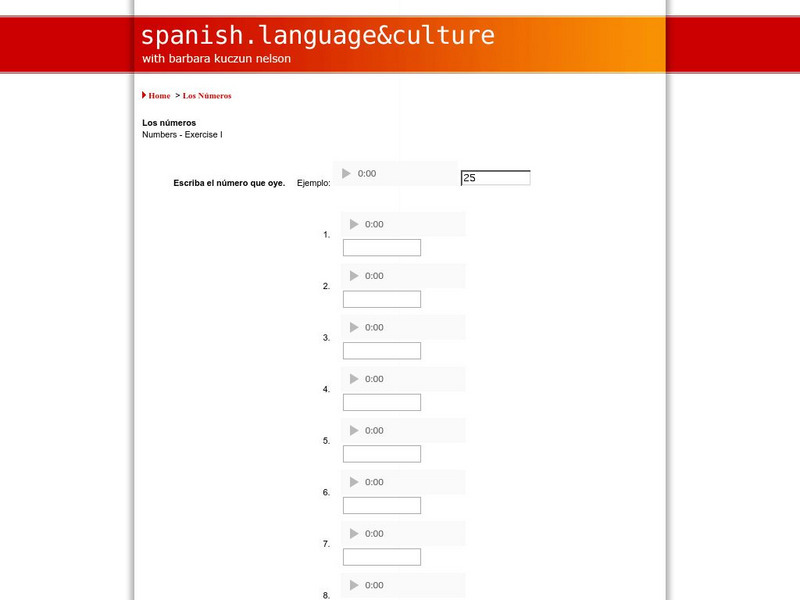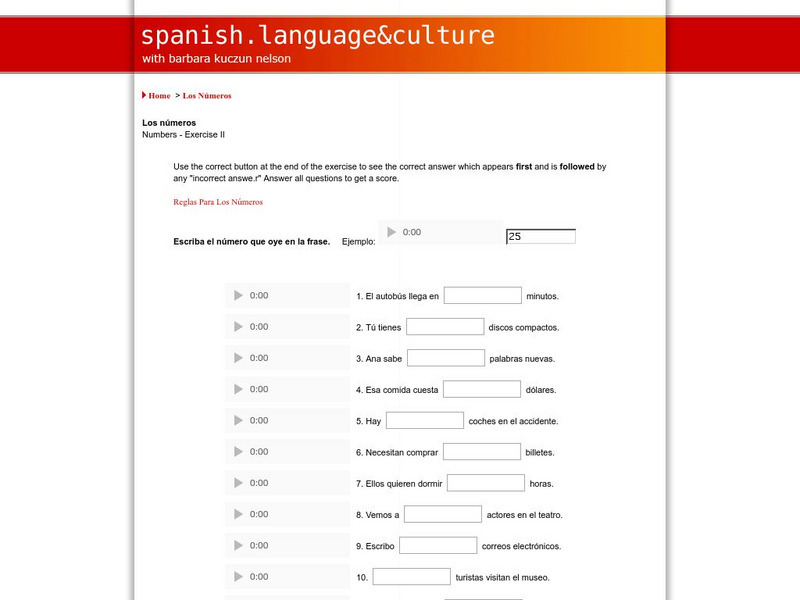E-learning for Kids
E Learning for Kids: Science: Antarctica: How Can We Hear Sounds?
James lives on Antarctica and loves the unique sounds he hears there. He is curious to know how it is possible that we hear sounds. Join him to help figure this out.
E-learning for Kids
E Learning for Kids: Science: Antarctica: How Are Sounds Useful to Us?
Paul is a researcher on Antarctica. The topic of his research is sounds. Identify which objects make sounds, and learn to recognize different sounds.
Library of Congress
Loc: Poetry 180: How to Listen
In this non-prose piece, the poet shares how to listen carefully to others.
University of Washington
University of Washington: The Ear
The University of Washington offers a description of how the ear works, plus plenty of fascinating facts. Includes labeled diagram of the ear, sound clips of vocabulary words, and links to pages for further investigation.
Science and Mathematics Initiative for Learning Enhancement (SMILE)
Smile: Measuring for Cookies
In this lesson, students use math and physics skills to follow directions when making cookies. This is a very detailed and structured lesson!
Charles I. Kelly and Lawrence E. Kelly
Many things.org: Listen and Read Along
Read along and listen to different articles and stories to strengthen vocabulary and listening skills.
Charles I. Kelly and Lawrence E. Kelly
Many things.org: Esl Videos
Links to videos in English on a variety of topics, intended to strengthen listening skills. Some include text to follow along with.
TED Talks
Ted: Ted Ed: Are You a Good Listener?
We hear a lot about how to speak well in public, but very little about how to learn the equally important art of listening properly to others. This video describes four steps to becoming a good listener. [4:57]
Other
Musical English Lessons
Learn English vocabulary and grammar through songs from a wide range of famous pop artists from the Beatles and Elvis to contemporary standouts like Avil Lavigne, Good Charlotte, and James Blunt. Find an exercise by grammar or vocabulary...
Other
Dean and Laura Vandruff: Conversational Terrorism
This humorous essay arms you against a host of "conversation terrorist" techniques. Learn to interpret phrases that are meant to keep you quiet, change the subject, or throw you off track in your conversation. SL.9-10.3 Eval...
Other
Ello: Listening Games
Listening games based on a range of every day, "authentic" themes: making a sandwich, hair, getting and giving directions, taking a phone call, holidays, etc. Listen to an audio description, then pick the picture that matches it. Geared...
Other
Data Guru: The Communication Process
This communication tutorial focuses on online communication in which interpretation can lead to conflict.
Polk Brothers Foundation Center for Urban Education at DePaul University
De Paul University: Center for Urban Education: Guided Reading/listening Ques: Nonfiction[pdf]
This graphic organizer will assist students with taking notes connected nonfiction content. After taking notes with the graphic organizer, students will ask guiding questions listed on the sheet.
BBC
Bbc Bitesize: Higher English
This site provides information about characters, plot, and setting of several different pieces of literature. It offers links to activities and tests on topic such as analysis and evaluation, creation and production, drama, novels, and...
ReadWriteThink
Read Write Think: The Two Voices of the Ow Spelling Pattern
Variable vowels are the focus of this lesson; students use nursery rhymes and ow to study how vowels can change their sounds according to different spelling patterns.
ReadWriteThink
Read Write Think: A Directed Listening Thinking Activity
Lesson which requires students to listen to The Tell-Tale Heart read aloud, answer prediction questions during the reading, and write written responses after. Excellent for beginning a mystery unit.
ReadWriteThink
Read Write Think: Guess What's in the Bag a Language Based Activity
Contains plans for a language activity called "Guess What's in the Bag." Learners try to guess the object in a bag in order to develop descriptive language, listening, and problem solving skills. In addition to objectives and standards,...
Colby College
Spanish Language & Culture: Numbers 1 100 (Part I)
Great listening comprehension practice with the Spanish numbers 1-100. Write the numerals for the number you hear and check your answers.
Colby College
Spanish Language & Culture: Numbers 1 100 (Part Ii)
Great listening comprehension practice with the Spanish numbers 1-100 from the Colby College. Write the numerals for the number you hear in the sentence and check your answers.
Colby College
Spanish Language & Culture: Reflexive Verbs in Song
Complete the lyrics of a song with a variety of reflexive constructions. A great way to review some basic reflexive verbs and become familiar with other reflexive verbs that are not so basic.
Yale University
Yale New Haven Teachers Institute: Poetry for the Elementary Classroom
Site contains a narrative and three lesson plans. These plans are designed to assist students with various aspects of poetry. This site discusses strategies which enable students to effectively, memorize, recite, and correctly pronounce...
Mind Tools
Introducation to Communication Skills
This article reveals the purpose of communication: to get your message across to others. This may seem elementary, but the process that involves both the sender of the message and the receiver is complex and can lead to confusion and...
Biz Move
Biz Move: How to Be a Better Listener
Article on the importance of listening in the business setting. Explains what listening is, gives guidelines, and lists barriers.
Books in the Classroom
Carol Hurst's Children's Literature Site: Eric Carle
What do you know about Eric Carle, the author? This Carol Hurst site highlights some interesting facts about this author's life and refers to some of his books.


